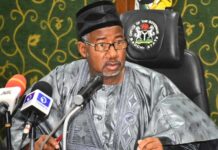A second Very Large Crude Carrier (VLCC), Oak Maritime’s Kondor, has experienced delays in unloading its crude oil cargo at Nigeria’s Dangote refinery, reportedly due to payment issues.
This follows a similar incident involving an Angelicoussis tanker in April, as reported by Trade Winds News. The Kondor, a 298,000-dwt vessel built in 2012 and owned by Canada’s Oak Maritime, has been anchored off the coast of Lagos for over a month, according to S&P Global tracking data.
It arrived in Nigeria on May 5 but has yet to discharge its 1.9 million-barrel cargo.
In March and April, the Maran Mira, a 300,000-dwt Very Large Crude Carrier (VLCC) operated by Angelicoussis Group, was stranded off the coast for a month allegedly due to payment disputes. The vessel, chartered by PetroChina, had departed from the US on March 5 with a cargo of oil. By April, it was incurring daily demurrage charges of $65,000, totaling a significant amount for the month-long delay.
In April, Reuters also reported that PetroChina, a Chinese state energy company, had been unable to unload a cargo of US crude oil at the new Dangote refinery for nearly a month due to payment issues.
According to trading sources who spoke to Reuters and shipping data, the Maran Mira supertanker had been anchored off Nigeria since March 28, carrying 2 million barrels of West Texas Intermediate (WTI) crude.
The delay in unloading the cargo highlights the challenges faced by the $20 billion Dangote refinery, which aims to become the largest refinery in Africa and Europe. The refinery, funded by Aliko Dangote, Nigeria’s richest man, seeks to reverse the country’s reliance on imported fuel and refined products despite being an oil-rich nation.
The issue is reportedly due to the refinery’s failure to issue a letter of credit to PetroChina, a necessary guarantee for payment to the seller upon delivery.
According to sources, PetroChina had been reluctant to accept oil products as payment for crude oil deliveries to Dangote refinery, which had been one of the payment methods used by Dangote.
Additionally, the refinery has faced challenges accessing US dollars through the Nigerian government, due to the naira’s decline against the US dollar amid rising global oil prices, straining Nigeria’s finances.
A shipbroker estimated that the ship was incurring daily demurrage costs of approximately $65,000. In response to the situation, Edwin Devakumar, an executive at Dangote Group, described negotiating favourable sale prices and credit terms as a standard business practice.
He emphasized that he would capitalize on any offered credit terms, whether short or long-term, to secure the best possible deal. While Devakumar did not directly address the issue with PetroChina, he asserted that any delays are a result of unfavourable deals.
The refinery, which began operations in January and has reached half its capacity, faces challenges in increasing production due to the need for significant working capital to purchase large volumes of crude oil.
Currently, the facility imports around 10 crude oil cargoes monthly, amounting to roughly half its target capacity of 650,000 barrels per day.





